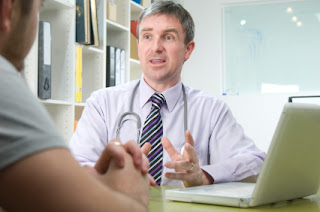Cardiovascular
Overweight increases risk for heart attacks and heart failure. This can occur on the left side of the heart from having to pump blood through so much tissue or on the right side from an inability to lift the chest wall because of weight. Obese people don’t oxygenate well because the blood vessels in the lungs squeeze down and the right side of the heart has trouble pumping. This also leads to strokes from high blood pressure.
Cancer
Obesity increases cancer risk, especially of the colon, breast, or uterus. This is primarily because of the increased estrogen production from fat tissue.
Lipid Problems
Increased triglycerides lead to pancreas and heart diseases. Increased cholesterol levels lead to heart disease and gall bladder problems.
Type 2 Diabetes
Eighty percent of those who suffer from adult-onset diabetes are overweight. The great majority of the sufferers of this disease could cure themselves by getting down to their ideal body weight, watching their diet, and exercising properly.
Joint, Tendon, and Back Problems
Such problems are far common in heavy people. Knees, ankles, and back are especially vulnerable.
Pregnancy Complications
Overweight mothers are more prone to having large, difficult-to-deliver babies, gestational diabetes, blood pressure problems, and convulsions. Obesity presents a risk for both mother and child.
Surgical Risks
Obese patients are poor surgical candidates. They don’t heal well, they are prone to infections, they are anesthetic risks, and they are more at risk from blood clots.
Aging
Because of these stresses on the body, overweight people do not age well.
A diet is a lifestyle change, and any lifestyle change – even a healthy one – will put stress on the body. Therefore, it’s important that your doctor give you a physical examination before you begin dieting.
Risk factors to watch for including heart attack or stroke history, blood clotting history, liver or kidney disease, cancer not in remission, acute psychiatric disorder, type 1 diabetes. Being overweight puts patients with these disorders at a much higher risk than losing the weight would, but these patients should be monitored very closely.




